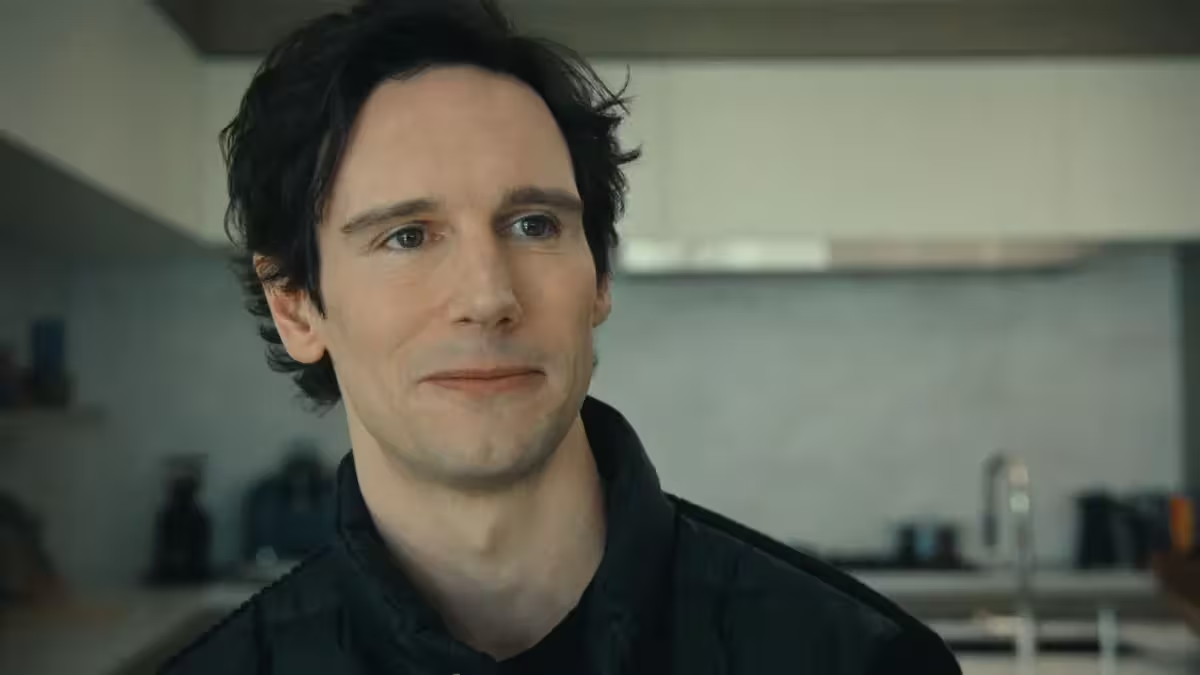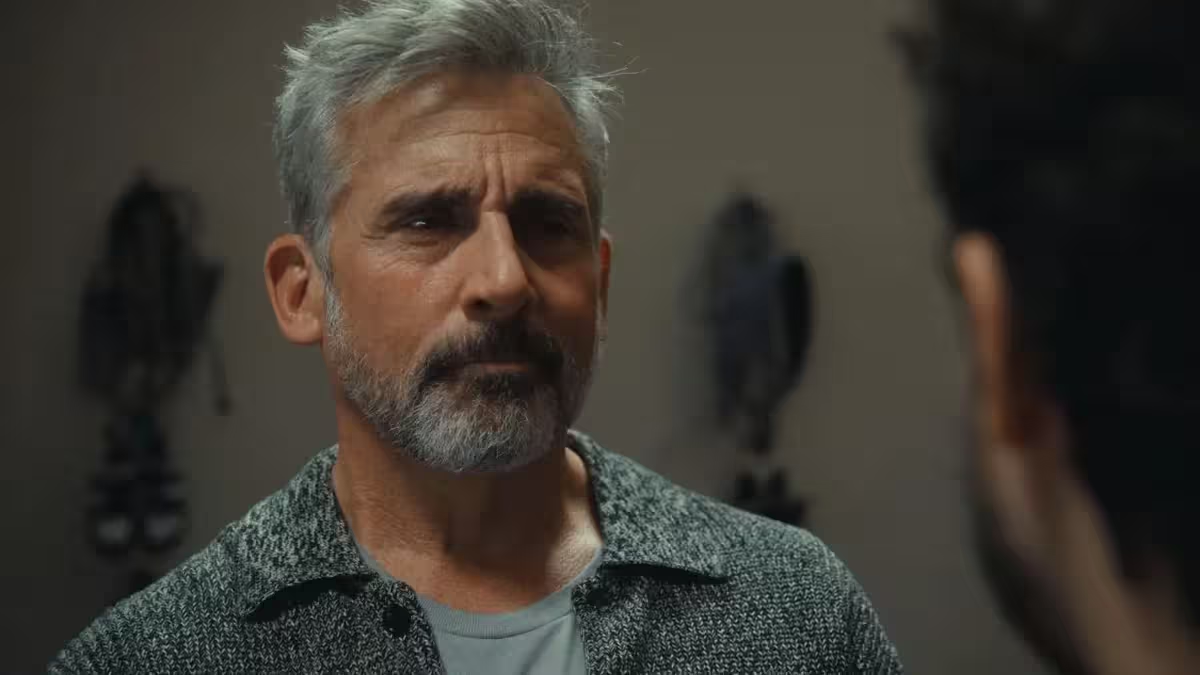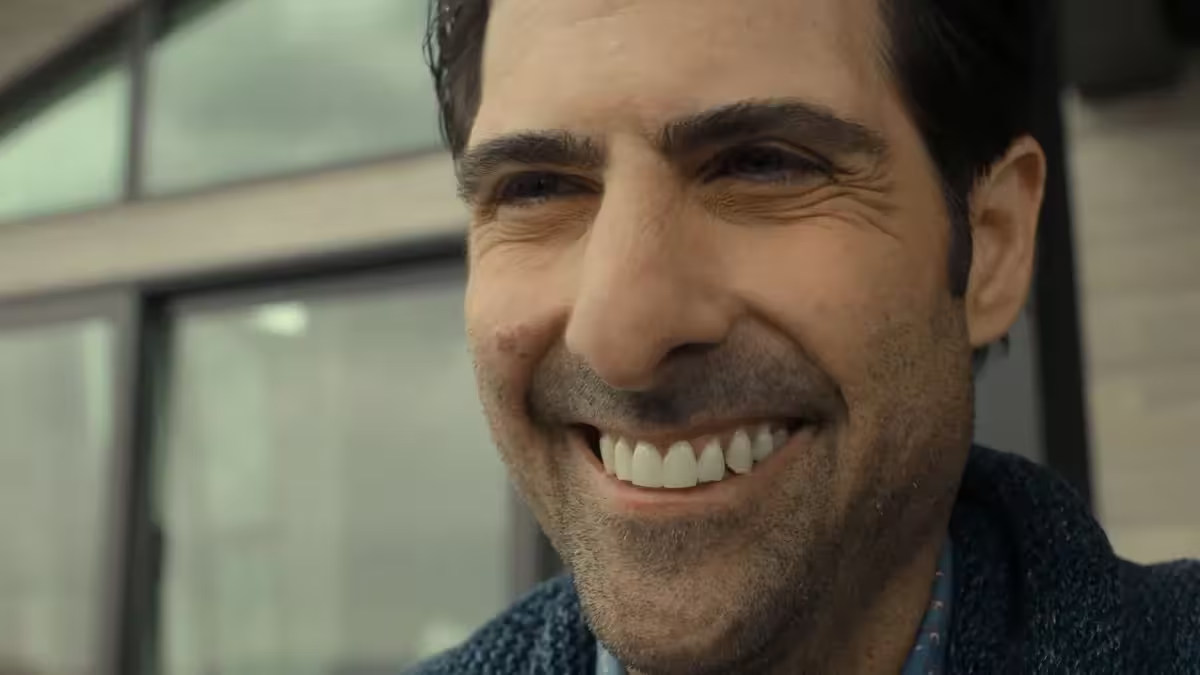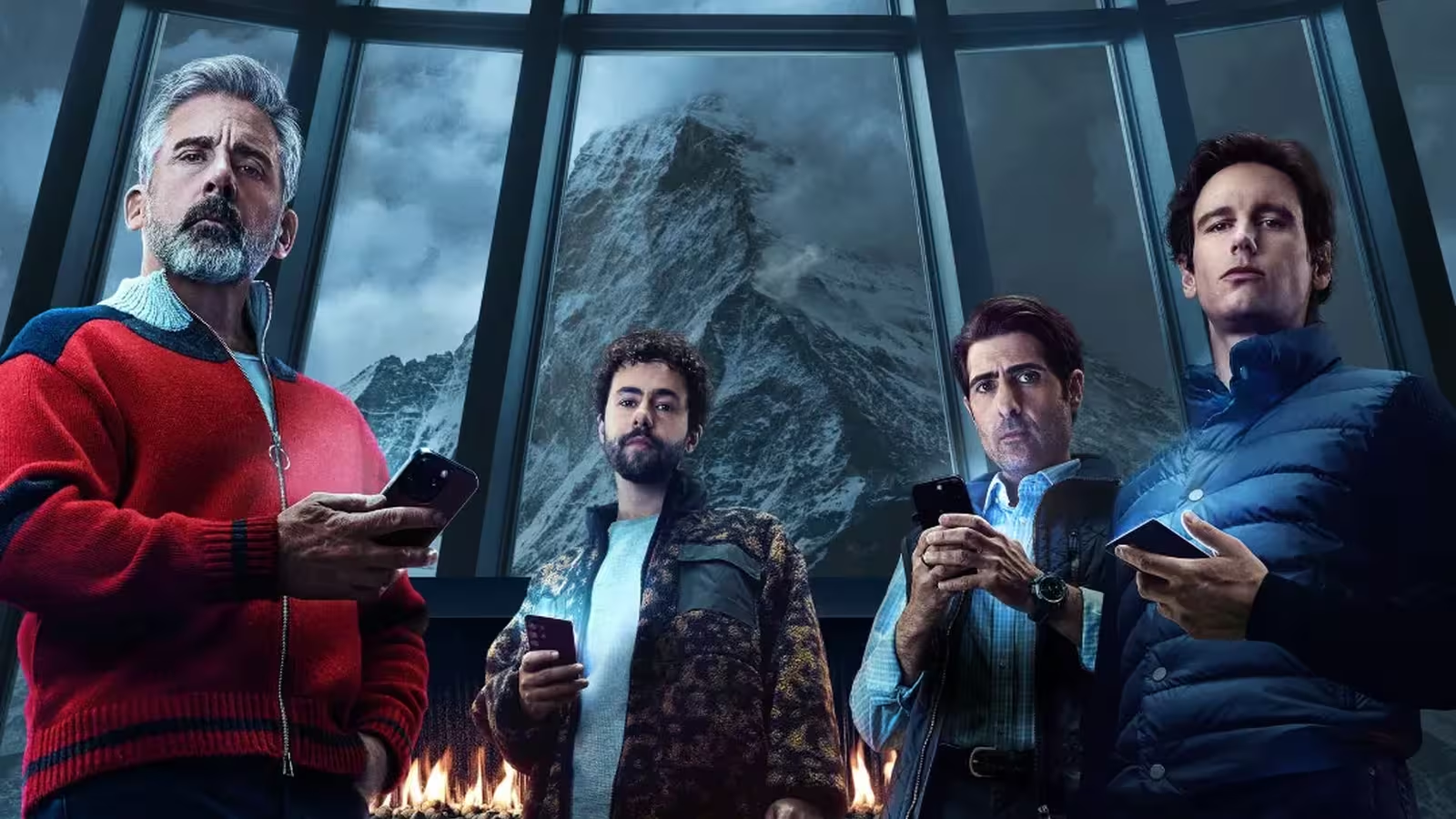10 Minutes
Jesse Armstrong’s highly anticipated feature debut, "Mountainhead," dropped on HBO Max with expectations as towering as its title, coming hot on the heels of his cultural juggernaut, "Succession." But does Armstrong manage to climb new heights, or is his mind still wandering the Roy family’s legacy? For Lithuanian cinephiles eager for nuanced drama, morality tales, and modern satire, exploring "Mountainhead" is a journey into the heart of power, technology, and the limits of the human soul.
Plot Summary: Four Billionaires and the World on Fire
"Mountainhead" opens with an exclusive gathering of four ultra-wealthy men in a luxurious snowbound villa: Van (Cory Michael Smith), the world’s wealthiest man and owner of the globe-spanning social platform “Trem”; Jeff (Ramy Youssef), a visionary AI entrepreneur; Randall (Steve Carell), an aging business titan wrestling with mortality; and Soup (Jason Schwartzman), a millionaire desperate for the billionaire badge. Their ‘friendly’ weekend quickly unravels as personal ambitions, AI technologies, and corporate power collude, sending their relationships into hostility — and the world toward chaos. In this tightly constructed chamber piece, Armstrong asks: What happens when those pulling the strings of reality begin to lose their own grip?

A Familiar Echo — The Imprint of Succession
If you hoped Armstrong might veer wildly away from his "Succession" roots, prepare for déjà vu. "Mountainhead" is consciously, at times almost defiantly, the cinematic cousin of Armstrong’s acclaimed TV drama. From ice-cold dialogue and the caustic banter to the psychologically isolated world of the ultra-rich, it’s evident Armstrong is less interested in moving on and more entranced by amplifying his established themes for the big screen. The family boardroom has simply morphed into a tech bro’s snowbound fantasy.
Each core character in "Mountainhead" is a recognizable composite of "Succession’s" icons: Van channels Kendall and Matsson’s erratic genius, Randall is haunted by Logan Roy’s existential weight but carries his own sense of generational defeat, Jeff searches for moral footing reminiscent of Shiv with a tech twist, and Soup is a blend of Roman Roy’s jest and Hugo’s social inferiority. This intentional inheritance is both a strength and an Achilles’ heel as Armstrong tests how the politics of legacy mutate in the era of tech and artificial intelligence.

Behind the Scenes: Genesis and Production
Armstrong’s journey to "Mountainhead" began after a deep-dive review he penned for Michael Lewis’s “Going Infinite,” the chronicle of crypto mogul Sam Bankman-Fried. The book sent Armstrong down a research rabbit hole exploring the language, bravado, and ethical void at the core of Silicon Valley’s elite. Inspired (or alarmed) by the likes of Elon Musk and Sam Altman, he pitched "Mountainhead" to HBO with one urgent question: Can we do this fast?
The answer was a whirlwind production cycle: Armstrong drafted the script in 10 days, secured his main cast before a full screenplay existed, and completed shooting in just five weeks. From conception to premiere, only six months elapsed — a speed that fuels the urgency, but also exposes cracks in the film’s dramatic armor.

Reflection of Our Times: AI, Media, and Hyper-Change
"Mountainhead" is a film written for — and by — its unprecedented epoch. The narrative is filtered through the breakneck rise of generative AI, the unchecked sway of social networks, and the exponential power wielded by their architects. In Armstrong’s universe, as in ours, not only are old media empires surrendered to the startup tsunami, but tech founders now directly interface with — and usurp — traditional state power.
The background details echo real news cycles: Musk launches Grok, Trump returns to power, and the boundaries between corporation, government, and global catastrophe evaporate. The film’s timeline follows this flux, making Armstrong’s haste both logical and a creative risk. As AI and social platforms spiral out of control on screen, so too does the narrative’s sense of looming real-world inevitability.

Plot Construction and Symbolism
The heart of the film beats inside the villa’s frozen isolation — the literal “mountainhead.” Here, Armstrong examines how privilege, detachment, and denial can severe even the most powerful from the consequences of their actions. News from the burning world filters in only faintly, with Van dismissing billions as less real than his own circle, and the others retreating deeper below ground as paranoia and violence brew.
This internalized Armageddon finds its tragic rhythm as each character’s motivations drip-feed through the taut script: Van’s existential emptiness and desperate quest for transcendence, Randall’s fight against mortality’s humiliations, Soup’s endless status anxiety, and Jeff’s impossible position as the film’s lone moral conscience. As the AI-centered plot escalates, Armstrong magnifies the psychological bankruptcy underpinning the pursuit of power.

Dialogue, Tone, and Directorial Choices
Armstrong’s greatest asset remains his razor-sharp dialogue. Every scene is a linguistic duel, characters sparring with manic wit and profound philosophical undertones. For fans of "Succession," these exchanges will feel like home — hilarious, uncomfortable, and alarmingly insightful. The film’s best moments unfold amid closed-room debates, where the battle over algorithms becomes a proxy for the battle over humanity itself.
That said, Armstrong’s leap from television to film exposes both ambition and limitation. Mountainhead’s mise-en-scène lacks the visual dynamism of "Succession’s" best TV episodes. While the stage-play austerity puts the dialogue front and center, the film sometimes maligns visual storytelling for the comfort zone of talk. The result is an atmosphere that, in cinematic terms, can feel static, especially as the third act leans on dramatic setups never fully executed in imagery or tension.

Character Studies: Beyond Stereotypes
Van (Cory Michael Smith): The embodiment of tech overlord loneliness, Van’s drive is propelled by a bone-deep void in his personal relations, compensating with a grandiose dream of post-humanism. His scenes, especially the cryptic climbing metaphors and his haunted interactions with an absent child, radiate both dark comedy and profound sadness.
Randall (Steve Carell): Facing a terminal diagnosis, Randall is all bravado masking existential terror. His quest to fuse consciousness with AI — to cheat death — drives much of the plot, and Carell delivers an understated performance that balances anger, delusion, and ultimate resignation.
Jeff (Ramy Youssef): As the film’s ethical compass, Jeff’s dilemma is the fraught heart of Mountainhead. The film problematizes his morality, asking whether conscience has a place at the centers of power or whether it’s doomed in a world allergic to principle.
Soup (Jason Schwartzman): Tragicomic, Soup stands in for those always left outside the inner sanctum, desperate to be taken seriously but perpetually the butt of the joke. His monologue by the fire is as devastating as it is ridiculous, reflecting Armstrong’s knack for drawing pain and laughter from the same well.

Key Themes: Power, Detachment, and the Limits of AI
Thematically, "Mountainhead" is a meditation on modern power — its surging reach, its emotional cost, and its ethical bankruptcy. Armstrong’s billionaires are emblematic of their era: obsessed with legacy, terrified of death, unable to connect, and catastrophically detached from the worlds their technologies shape. The film toys with ideas of AI singularity and the replacement of traditional morality with self-interested rationalizations, charting a descent into a world where truth is negotiable and nothing is sacred.
Production and Artistic Elements
Mountainhead’s hurried production shows — and not always for the better. The movie’s mostly minimalist set design and focus on interiors can feel claustrophobic, underscoring the characters’ mental isolation but at times robbing the narrative of scale. The visual storytelling lifts at certain moments (notably when paranoia drives the billionaires deeper into their lair), but Armstrong’s cinematic vision is, for now, less secure than his literary one.
Musically, the familiar touch of Nicholas Britell — also composer on "Succession" — provides continuity and melancholy, connecting Armstrong’s cinematic and televisual universes.

Critical Reception and Personal Take
Initial critical reception to "Mountainhead" has been intensely divided. Admirers hail Armstrong’s dialogue and biting satire as the core of modern prestige drama, while detractors argue the film’s third act falters — its ideas outrunning its plot, and its climactic moments arriving with a shrug. Particularly contentious is the film’s treatment of morality: instead of a shocking coup de grace, the narrative grinds to a philosophical stalemate, refusing resolution.
From a viewer’s perspective, the pleasure of Armstrong’s work remains in its language, its ambiguity, and its commitment to character over external spectacle. "Mountainhead" is the kind of film that leaves you unsettled rather than satisfied — a cinematic think piece that values questioning over closure.

Conclusion: Mountainhead in Context
While “Mountainhead” does not reinvent the wheel — and in some respects, is purposefully stuck in "Succession’s" grooves — it invites audiences to confront urgent questions about power, technology, and the reality-warping influence of those behind the digital curtain. Armstrong’s storytelling, unflinching in its cynicism yet laced with mordant humor, offers a mirror to our times and a warning for our future.
For Lithuanian readers passionate about movies, television, and the arts, "Mountainhead" is required viewing — not as a perfect film, but as an artifact of the cultural anxieties that define the age of AI, billionaires, and the vanishing road between ethics and ambition. Whether Armstrong’s next ascent will break further from his own legacy remains to be seen, but the journey, for all its discontents, is still breathtakingly relevant.


Comments